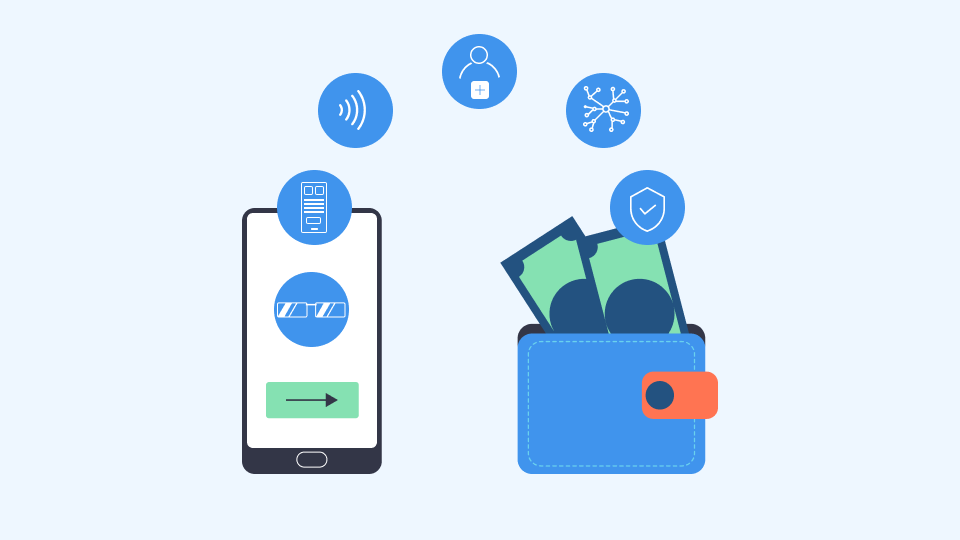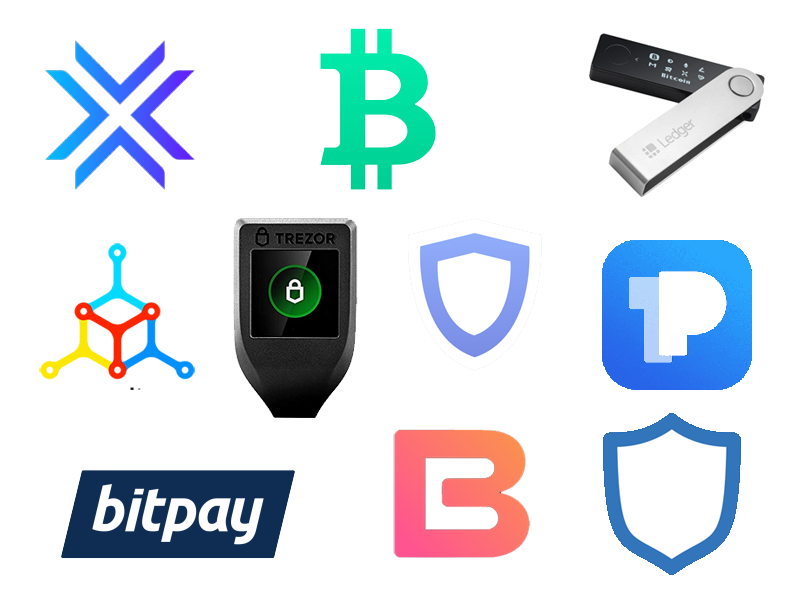Litecoin (LTC): Litecoin is a digital currency that is decentralized that is inspired by the Bitcoin protocol, but with a few significant differences, like an increased time to generate blocks and the use of a distinct hashing algorithm.
Monero(XMR): Monero uses a variety of privacy-focused features such as stealth address and ring signatures to enhance security and increase privacy.
TRON (TRX) TRON (TRX) TRON is a decentralized crypto-blockchain platform, and cryptocurrency, is intended to help create and use of decentralized apps (DApps). The platform can also facilitate sharing content. TRON's mission is to develop a global digital content entertainment platform using blockchain technology and peer–to-peer networking technology (P2P). Follow the most popular usdt wallet app for website examples.

Differences:
Bitcoin is a primarily digital currency that is decentralized. Ethereum however, is a decentralized platform that enables users to design custom tokens and smart contract. Litecoin has a faster block generation speed and unique algorithm for hashing.
Monero is concerned about security and privacy. TRON, however, aims to create an international digital entertainment platform.
TRON uses a Delegated Proof of Stake, while other cryptocurrencies use a Proof of Work and Proof of Stake mechanisms.
10 Things You Need To Know About A Usdt Wallet
You want a USDT-based wallet with key features like security, options for recovery and backup, as well as the ease of use.
Security: Securely save your USDT and enable two-factor authentication. You should ensure that your private keys are safe and safe.
Keys for private and public Similar to other wallets for cryptocurrency, USDT wallets also have public and private key. The public key lets you to access USDT. The private key allows you to access and send USDT.
USDT Receiving: In order to receive USDT, you have to give your public number to the sender.
For sending USDT, to send USDT, enter the recipient's public keys and the amount you would like to transfer.
Transactions
Pegged value USDT = USDT is fixed at the US dollars value. This means that USDT's value remains stable relative the dollar.
Conversion: USDT is possible to convert to fiat or other currencies as well as currency through exchanges.
Integration: USDT wallets can integrate with exchanges, financial services or other services to enable seamless transfers of funds. Have a look at the recommended tron wallet app for more recommendations.

10 What I Need To Know About An Etherium Wallet
Its purpose. A Ethereum wallet is a software program that stores, transfers, and also receives Ether (ETH), the currency of Ethereum.
The main features to consider: Make sure you look for an Ethereum wallet that has security options (e.g. It should offer encryption in addition to backup and retrieval features, as well as ease-of use.
Security: Make sure your ETH is secure in a wallet. Consider enabling two-factor authentication. Secure your private keys and safe.
Public and private keys The Ethereum wallet has a public key for receiving ETH as well as a privately-owned key to access and send ETH.
Receiving Ethereum Sharing your private secret key with the sender in order to get ETH.
Sending Ethereum: Type in the recipient's public keys as well as the amount you would like to send.
Transactions: All transactions made using the Ethereum wallet are recorded on the Ethereum blockchain, which is a publicly accessible ledger that records all ETH transactions.
Gas costs: Ethereum transactions will require gas. A fee of ETH is required to make the transaction. Be aware of the cost of gas when you make transactions.
Contract support: Certain Ethereum wallets let you build and manage smart contracts. Take a look at the most popular usdt erc-20 wallet for blog examples.

10 Things To Know About Monerowallet And Xmr Wallet App
Purpose: A Monero (XMR) wallet is a software application used to store, send, and receive Monero, a privacy-focused cryptocurrency.Types: There are different types of Monero wallets, including software wallets, hardware wallets, and paper wallets.
Features that are important: Monero wallets should offer security features like encryption. Secure backup and recovery, as well as ease of use are some of the most important features the Monero wallet has to offer.
Security: Store your XMR in a safe wallet. You should also consider the possibility of enabling two-factor authentication. Your private key must be safe and secured.
Private and public keys: Monero wallets contain a public address which can be used to receive XMR and the private view key which is used to look at incoming transactions. A private spend key can be utilized to gain access to and transfer XMR.
Receiving XMR
Sending XMR : Enter the public address of the recipient as well as the amount you would like to send.
Transactions: Transactions that are made using a Monero wallet are recorded in the Monero blockchain, a publicly accessible ledger of every XMR transactions.
Privacy: Monero provides privacy by concealing the source as well as the amount and location of transactions using anonymous addresses and ring signatures.
Scalability: Monero was designed to scale, which allows the growth of transactions as demand increases. Follow the most popular xmr wallet app for website recommendations.
How Is A Tether Erc-20 And Usdt Erc-20 Different?
USDT (Tether) is a stable cryptocurrency that, is tied to the US Dollar. Its value is intended to be stable in relation to US dollars. USDT is available on a variety of blockchain networks, such as Omni (a Bitcoin network), Ethereum (ERC-20), and many more. A USDT ERC-20 portfolio is a type of wallet that holds USDT tokens that are created on the Ethereum blockchain following the ERC-20 standard. Tether ERC-20 wallets are like these. They are able to hold Tether (USDT), tokens that were built on Ethereum by using the ERC-20 standard.
That's where the major difference lies between the two kinds of wallets available: USDT ERC-20 vs Tether ERC-20. Both are the name of a single underlying asset that is a stablecoin based on the US dollar, and available on the Ethereum blockchain through the ERC-20 standard.